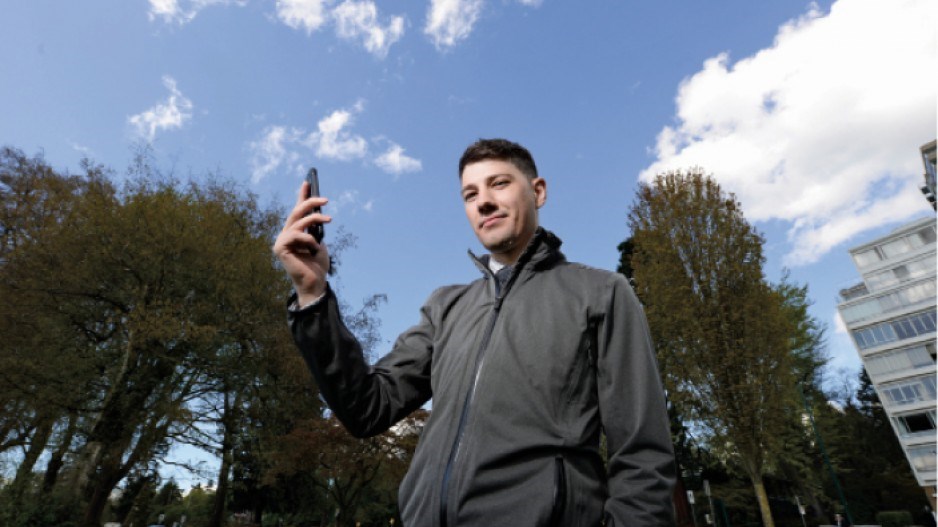Vancouver is poised to join the many cities around the world that provide free Wi-Fi in public spaces to improve tourist experiences and reduce residents’ reliance on data plans.
The Vancouver park board voted 4-2 last month to direct the City of Vancouver’s chief digital officer, Jessie Adcock, to draft a report by fall with an outline for how the city can create a cost-effective, public Wi-Fi system.
She will look at cities around the world and examine their models for free Wi-Fi.
Governments help foot the bill in some cities. Other cities team up with a private-sector partner, are dependent on advertising and sponsorships or get funding from private foundations.
Direct city funding of public Wi-Fi has worked in Quebec, where municipal governments have paid for public Wi-Fi for years, said André Boisvert, who is general manager of Île Sans Fil, which means “island without wires.”
His non-profit organization has a budget of less than $1 million, 90% of it funded by governments such as suburban Montreal municipalities, the City of Montreal and the city’s 19 arrondissements (boroughs) – each of which have independent budgets.
Boisvert helped found his organization in 2003, when it was largely volunteer-run. It morphed into a more businesslike non-profit a few years ago and gets some revenue for providing and maintaining Wi-Fi for private businesses such as restaurants.
His goal is to make the organization primarily funded by private-sector clients.
“Often [governments] have small buildings in parks,” he said. “There’s already a telephone service and electricity so they have everything needed for a small Wi-Fi zone around a building in a park.”
Private businesses pay Île Sans Fil between $60 and $120 annually depending on the size of Wi-Fi hotspots. Users do not need to download any new software or apps. All they need to do is agree to terms and conditions, he said.
Quebec City’s ZAP (Zones of Access for the Public) operates “exactly the same with the same software and same business plan,” Boisvert added.
New York City’s model is to have a private partner. It rolled out free Wi-Fi in dozens of parks and plans to complete the rollout of the largest free Wi-Fi network in the U.S., in Harlem, in May. That project’s private partner, Sky Packets, received funding from the Fuhrman Family Foundation.
In New Zealand, Auckland’s attempt to provide free Wi-Fi by partnering with the private sector fizzled.
The city partnered with guidebook producer Localist to provide free Wi-Fi but the program soon shifted into a pay-for-service initiative unless the user only wanted to visit city-run websites.
In Wellington, New Zealand, the city council anticipated offsetting costs with advertising.
“Advertising doesn’t yet offset costs,” spokesman Phil Reed told BIV in an email.
“In the instances where there wasn’t paid advertising, council took the opportunity to promote activities and service to Wellingtonians and visitors. So we were still getting a wider benefit of providing information to the public.”
Wellington city council initially provided $75,750 to establish its free public Wi-Fi network and it pays about $204,500 annually to maintain it.
Shaw a likely partner for free Wi-Fi network
Advocates for a free public Wi-Fi network in Vancouver are leaning toward the city partnering with the private sector – a structure that has been used in other parts of B.C. with Shaw Communications.
One recent Shaw initiative, in Courtenay, will put Shaw equipment on that Vancouver Island city’s lamp poles and other facilities to beam Wi-Fi that is accessible to all, regardless of whether they are Shaw cable subscribers.
“I’m optimistic that we can come up with a strategy that includes most costs taken by private partners who we work with,” said park commissioner Trevor Loke, who moved the successful park board motion last month to have city staff investigate free public Wi-Fi.
He wants that access in city parks because it will encourage people to get outside and use city spaces.
Shaw already pays the City of Vancouver rental fees because it uses city poles for its hotspot installations in the Granville Entertainment District, said City of Vancouver chief digital officer Jessie Adcock.
So one potential arrangement is for the city to waive those fees in exchange for Shaw providing free hot spots near city beaches that everyone can access, she added.




